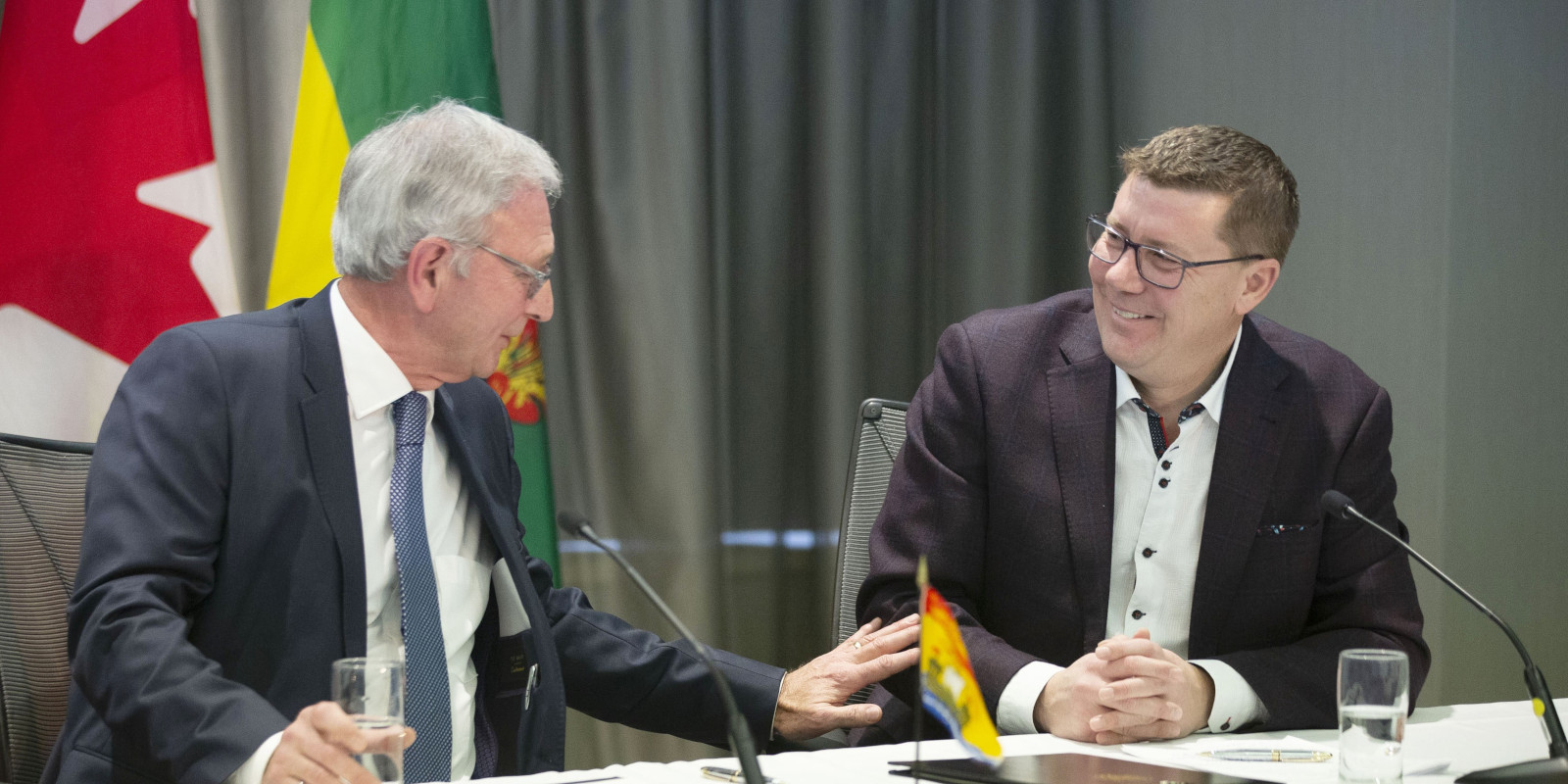In a matter of months the New Brunswick government has gone from lonely pariah to trendsetter in the debate over the rights of parents to be informed when their child changes his or her pronouns or gender identity at school.
Since New Brunswick Premier Blaine Higgs started fighting for his political life over a policy to notify parents about these issues, the provincial governments of Saskatchewan, Ontario, and Manitoba have publicly announced they support those rights, attracting both praise and criticism.
Perhaps more importantly, the more recent announcements have followed several polls indicating the majority of respondents of all age groups support a parent’s right to be informed about a child changing his or her pronouns. Following one such poll from the Angus Reid Institute, federal Conservative leader Pierre Poilievre has also stated that schools should leave conversations about LGBTQ issues with children to parents.
Mitch Heimpel, the director of campaigns and government relations at Enterprise Canada, says parents became far more familiar with teacher-student relationships during the COVID-19 pandemic when remote learning was the norm.
“Parents now have an understanding of what is going on at their kids’ school versus what they thought was going on at their kids’ school, and that has, across the political spectrum, raised alarm bells,” says Heimpel.
This slew of announcements in favour of parents’ rights by provincial governments was preceded by New Brunswick Premier Blaine Higgs’ government, which made national headlines in June when it revised its policies to mandate that parents be informed if their child changes their pronouns.
New Brunswick Teachers’ Association president Peter Lagacy called the Higgs government’s moves “unfortunate,” and urged it to reconsider its stance.
Michael Zwaagstra, a senior fellow with the Frontier Centre for Public Policy and a public high school teacher in Manitoba says a union’s leadership will not always reflect the feelings of all teachers. He also says that those who do choose to run for leadership positions within a union tend to be progressive, which is reflected in their opposition to enhanced parental rights.
“Teachers don’t all have the same opinion on this, and that’s fine,” says Zwaagstra. “When a teacher’s union president gives a position on this, don’t assume they’re speaking on behalf of all teachers.”
Zwaagstra worries about a decline in public school enrollment if teachers’ unions and progressive politicians push back against parental rights if polls suggest they are supported by the vast majority of Canadians.
“It’s one of the fastest ways to undermine public education, by creating this default setting where there’s no trust between school and the community,” says Zwaagstra.
Former Ontario Liberal Premier Kathleen Wynne criticized both the Ontario Minister of Education Stephen Lecce and Pierre Poilievre on X, formerly known as Twitter, for their statements regarding parental rights, accusing them of harbouring transphobia and homophobia.
Prime Minister Justin Trudeau also publicly opposed the policy decisions taken by New Brunswick’s government in June. Every government that has legislated or spoken in favour of parental rights has thus far been led by conservative premiers, who currently govern all but two of Canada’s 10 provinces.
Heimpel says many progressives who oppose a parent’s right to know if their child changes their pronouns, as proposed by those provincial governments, have been caught off guard by the broad public consensus in favour of those rights. After several decades of progress on other issues like marriage equality, Heimpel says many progressives believed that gender identity was part of the same playbook.
“Obviously, there are complicating factors here whenever you take a group of people, especially parents, and you start involving very young children in the public policy debate in terms of how they should be educated, the values they should be taught, the information they should be given, and the maturity level at which they’re able to process that information,” says Heimpel.
The Angus Reid Institute poll released this week showed an overwhelming 78 percent of respondents believed that parents should be informed about their child’s change of pronouns, while 43 percent believed parents must also provide consent to such a change.The Angus Reid Institute conducted an online survey from July 26-31, 2023 among a representative randomized sample of 3,016 Canadian adults who are members of Angus Reid Forum. For comparison purposes only, a probability sample of this size would carry a margin of error of +/- 1.5 percentage points, 19 times out of 20.. This follows a June poll from Leger which found 57 percent of respondents believed parents should be informed in the same situationAn online survey of 1,523 Canadians aged 18+ was completed between May 5 and 7, 2023 using Leger’s online panel. For comparative purposes, a probability sample of 1,523 respondents would have a margin of error of ±2.5 percent, 19 times out of 20.

Heimpel does not believe there will ever be a bipartisan consensus on the issue of gender identity in schools and parental rights.
“The two sides are speaking in entirely different values languages,” says Heimpel.
Darryl and Milena Weinberg are co-founders of School Pods, which they describe as a Canadian organization that is a hybrid between a homeschool co-op, a mini-school, and a private school. The Weinbergs are also skeptical of there ever being a consensus regarding pronouns, gender identity, and schools.
“I don’t think at this point that too many people are going to be changing their minds on just about anything. I think the days of rational dialogue and civil debate are over,” says Darryl Weinberg.
Zwaagstra says that communication with parents, on all issues, is one of the keys to a good education.
“The purpose of schools is to serve communities, and to educate students and obviously to provide information to parents,” says Zwaagstra. “I’ve always felt that on any topic, you have to have maximum communication and openness between the school and the home.”
Recommended for You

DeepDive: Canada’s universities are failing to provide proper civic education. Here’s how Alberta can correct course

Lydia Perovic: The future of history looks bleak, if Toronto’s museums are any indication

Matthew Alexandris: The new housing pipeline is dry. Here’s why

Paul W. Bennett: With AI taking over classrooms, it’s time to go old school again




